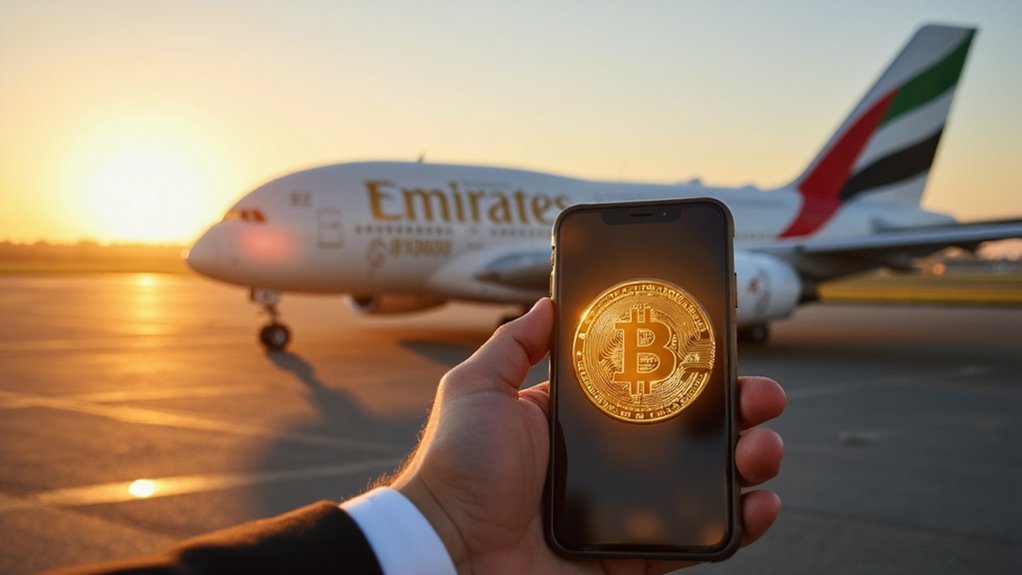While most airlines grapple with the mundane challenges of baggage fees and seat assignments, Emirates has decided to tackle the altogether more exotic problem of accepting Bitcoin for business class upgrades. The Dubai-based carrier’s July 2025 Memorandum of Understanding with Crypto.com represents a curious intersection of traditional aviation and digital asset innovation—one that suggests either remarkable foresight or elaborate marketing theater.
The partnership, orchestrated by Emirates’ Adnan Kazim and Crypto.com’s Mohammed Al Hakim, will integrate Crypto.com Pay into the airline’s payment infrastructure by 2026. This system will accommodate Bitcoin, Ethereum, and Solana alongside traditional currencies, supporting over twenty settlement options including USD and EUR. The technical sophistication required to seamlessly process volatile digital assets while maintaining regulatory compliance deserves acknowledgment, even if the practical necessity remains questionable.
Emirates’ strategic calculus appears straightforward: capture Generation Z and millennial customers who allegedly prefer cryptocurrency transactions over conventional payment methods. Whether this demographic’s crypto enthusiasm extends to airline bookings—rather than speculative trading—remains empirically unproven. The airline’s positioning as a Middle Eastern payments innovator nonetheless aligns with Dubai’s Economic Agenda D33, which envisions the emirate as a global financial technology hub.
The broader industry context adds legitimacy to what might otherwise appear as performative innovation. Multiple airlines have announced cryptocurrency acceptance initiatives, suggesting genuine market demand rather than isolated experimentation. Crypto.com benefits substantially from this association, gaining credibility through Emirates’ established reputation while expanding into travel commerce—a logical diversification from purely financial services.
The timeline reveals deliberate planning rather than impulsive adoption. Emirates’ cryptocurrency interest dates to 2022, indicating sustained strategic consideration rather than trend-chasing. The 2026 implementation target allows sufficient development time for robust security protocols and regulatory compliance frameworks. Unlike decentralized finance platforms that operate without traditional intermediaries, Emirates’ system will likely maintain centralized oversight while incorporating smart contracts to automate certain payment processes.
This partnership ultimately reflects aviation’s perpetual search for competitive differentiation in an increasingly commoditized industry. Whether accepting digital assets for Dubai-bound flights represents genuine innovation or elaborate customer acquisition theater will depend largely on adoption rates once operational. The initiative follows Dubai’s trajectory as a cryptocurrency hub, with numerous local companies from real estate developers to telecom giants already accepting digital payments. This move is particularly significant given that Emirates is known for innovation and luxury, setting a precedent for other airlines to consider crypto adoption.
The initiative certainly positions Emirates favorably among tech-forward consumers, though traditional payment methods will likely remain dominant for the foreseeable future.









